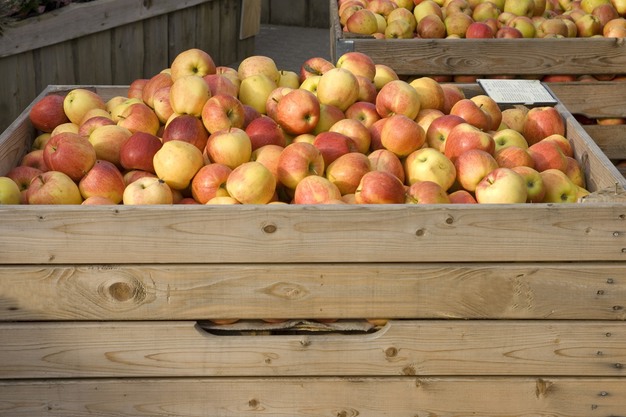In an open letter to French prime minister Michel Barnier, the apple and pear sector, which represents more than 25,000 jobs in France and produces 1,500,000 tons of fruit annually, has made a number of demands to the new government. According to the French Apple Pear Association (ANPP), "there are many reasons to doubt the government's willingness to contribute to the competitiveness of the sector."
 Consumed mainly in France, "our apples contribute to our food sovereignty. They are also recognized for their export value, making a positive contribution to our balance of trade," according to ANPP / Photo credit: © Dreamstime
Consumed mainly in France, "our apples contribute to our food sovereignty. They are also recognized for their export value, making a positive contribution to our balance of trade," according to ANPP / Photo credit: © Dreamstime
TODE, phytosanitary products and the Fruit and Vegetable Sovereignty Plan
"Unfortunately, budgetary constraints have led the government to make savings, and to preserve the purchasing power of the French. However, upon discovering the various options presented concerning exemptions from charges, and in particular that of the economists Bozio and Wasmer, we understand that the TODE (system of exemption from employer charges specific to the agricultural sector), which seemed to be a given for us, could be called into question. For the record, the vast majority of our employees are low-skilled and paid at minimum wage, while our wage costs are 1.5 to 4 times higher than those of our direct European competitors, bearing in mind that labour costs account for over 50% of the cost of producing our fruit."
Additionally, "the laws regarding the availability and conditions of use of plant protection products, and access to water, is a major competitive disadvantage throughout the European Union," according to ANPP. Once again this year, many orchards will have suffered aphid attacks, resulting in losses of up to 30% in some cases. "Everywhere else in Europe, our competitors still have acetamiprid for spraying until 2034, but it is inaccessible to us. And what about esfenvalerate, for which ANSES has just refused to renew the marketing authorisation, even though it is authorized everywhere else? Despite your predecessors' promises of solutions, and your recent promises to limit the drift of standards, we see nothing being done to repair the errors of the past and avoid those to come."
A final point was made about the Fruit and Vegetable Sovereignty Plan. "The calls for projects run by France Agrimer and financed under the Ecological Transition program have suffered as a result of budget cuts. Today, the budgets, frozen by 30%, are not enough to support planting projects using varieties that are naturally resistant to diseases and pests, or to protect against frost and hail in particular. Yet it is at the height of the crisis that we need to support the investments that will enable French orchards to improve their productivity in the face of climate change."
What are the sector's demands?
ANPP points out that it is not asking for emergency aid, which it describes as "money poured into a bottomless pit." Instead, it is asking for "the means for transition": to give sanctuary to the TODE, to give back to politicians and not to ANSES, as it is done elsewhere in Europe, the power to authorize effective and useful phytosanitary solutions, and finally to reverse the ban on neonicotinoids and honour the government's budgetary commitments under the Fruit and Vegetable Sovereignty Plan.
For more information:
Sandrine Gaborieau
Association Nationale Pommes Poires
www.lapomme.org
www.vergers-ecoresponsables.fr
